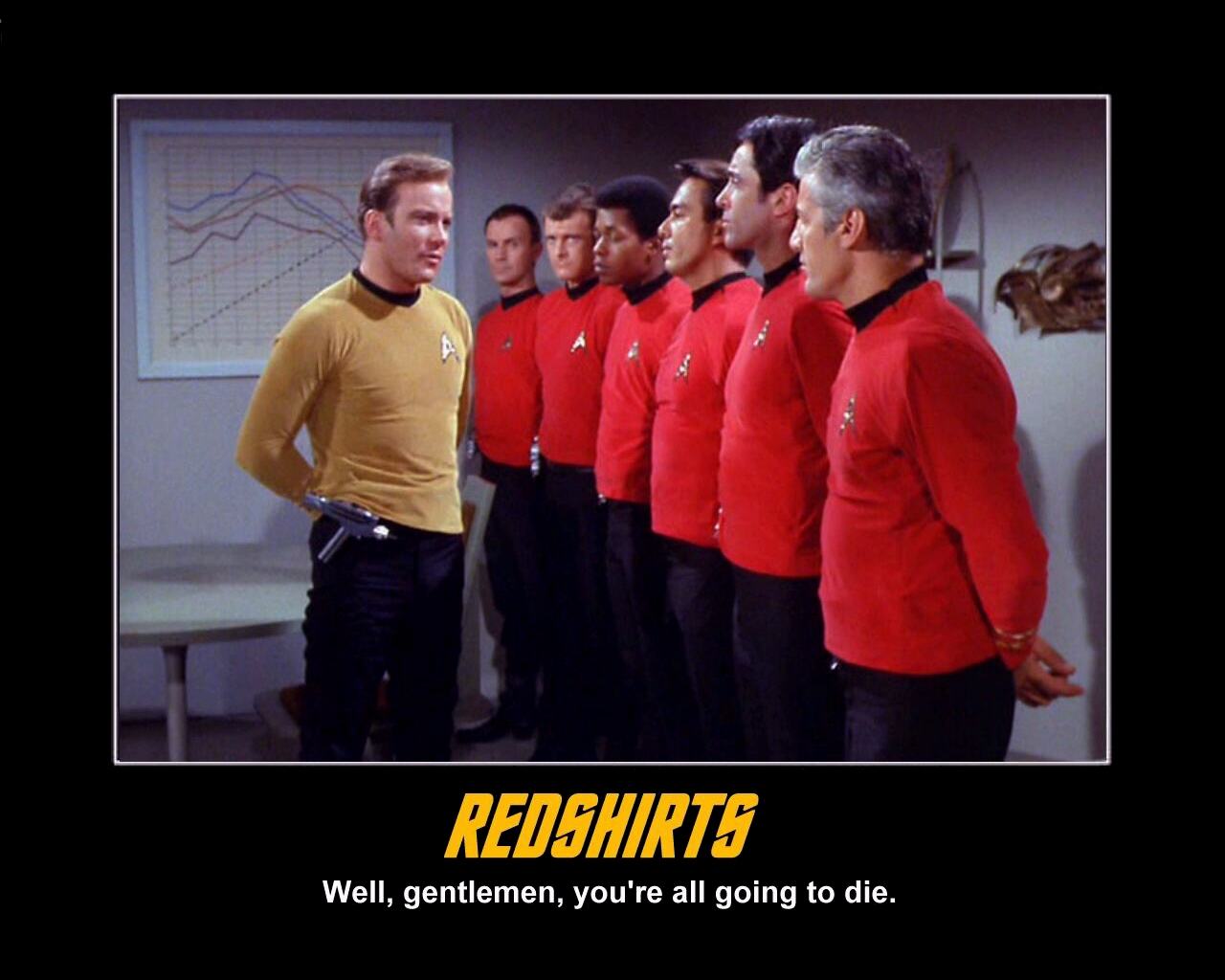So I went to one of those seeming time-wasting sites where you can take a quiz. This quiz determines what Star Trek character you would be if you lived in that amazing universe of creatures and pioneers.
As it turns out, I am an "Expendable Character" AKA "Redshirt".
Here is my full report.
My favorite part is the note about my job being important
and the correlation to death.
Something about this is interesting to me as I reflect on the perspective of teachers in general. When you break down a first year teacher's salary, they make about 5-6 dollars an hour. I actually made more than that working at Subway 6 years ago.
Everyone knows that the job of teachers is very important. Unlike Star Trek, in real life there aren't enough main characters to change the plot of the continuing debacle of American education for those in poverty. We need many more redshirts to be main characters in making a change. But in order for that to happen, maybe a change of clothes would be a good start?
The question to which I have no answer is: What is the equivalent of changing out of a red shirt in Star Trek to the change in the real world? Not just for teachers, but for everyone involved with education (parents, teachers, administrators, policy makers, etc).




